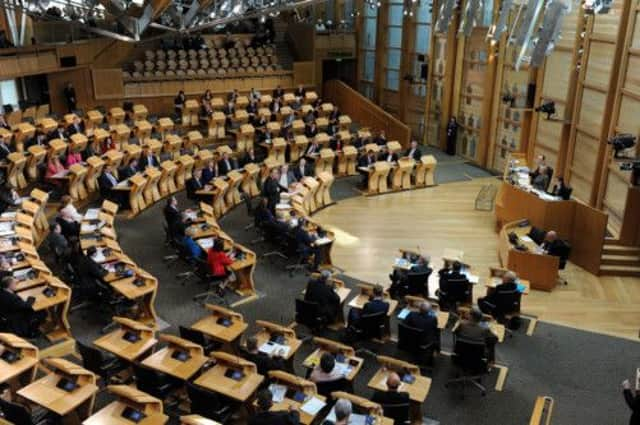New Holyrood tax powers are ‘challenge’, MSPs warn


MSPs are concerned about the level of information provided by the UK and Scottish Governments to help with the provisions of the Scotland Act 2012, including a new rate of income tax.
The new tax rate – due to come into force in April 2016 – means the UK Treasury will deduct 10p from standard and upper rates of income tax in Scotland and give MSPs the power to decide how to raise cash.
Advertisement
Hide AdAdvertisement
Hide AdBut Holyrood’s finance committee said there was a lack of clarity about forecasts, particularly with the UK’s Office for Budget Responsibility (OBR).
Considerable work will be needed by both governments to agree proposals to adjust the block grant allocated to Scotland by Westminster, the committee found.
MSPs also have concerns about “wildly optimistic” OBR forecasts for the land and building transaction tax, which replaces stamp duty land tax in April 2015. And they said forecasting for a new landfill tax must be transparent and open.
Committee convener Kenneth Gibson MSP said: “We believe it is essential that there is effective parliamentary scrutiny of the implementation process and, in particular, the way in which the UK government will adjust Scotland’s block grant to take account of the new financial powers.”
The report concludes: “The committee recognises that there is a considerable challenge for both the UK government and the Scottish Government in implementing the financial provisions of the Scotland Act 2012.
“Nevertheless, it is essential that there is effective parliamentary scrutiny of the implementation process.
“The committee is concerned about the level of information being provided by the two governments as the negotiations progress.”
The report warns that the key estimates of Scotland’s tax take are likely to be made more than a year in advance, instead of a few months, and this has prompted concerns about the margin of error.
Advertisement
Hide AdAdvertisement
Hide Ad“This has been as high as £8.4 billion when previous forecasts were done two years out and goes up to £10.9bn three years out,” it added.
“Forecasting errors have a significant impact on the Scottish budget. These errors have tended to be on the optimistic side and have tended to increase as the length of the forecast horizon.”
A Scottish Government spokeswoman said: “We agree that the Scottish Parliament and people require greater clarity over changes to the allocation of the block grant and the Scottish Government is working actively with HM Treasury to achieve that.”